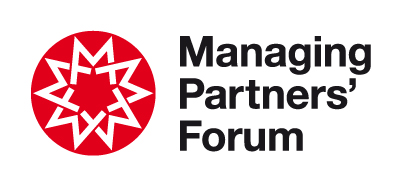At May’s MTT session, hosted by Lockton Companies and chaired by Maureen Penfold, managing partner of Kingston Smith, Professor Philip Treleaven, professor of computer science and director of the Financial Computing Centre at University College London presented the game-changing technologies that are transforming financial services. Richard Chaplin then identified some key strategies to help professional services organisations future proof their business.
The data revolution
Professor Treleaven believes that the data revolution is not the fourth industrial revolution; it is the second, he says, because, like the 1830 industrial revolution, it is bringing seismic change to business, society and employment. Our infrastructure is changing. Shops and universities are moving online and companies that have been around for hundreds of years are closing.
Average company longevity has dropped from 60 years to 11 and the service sector is experiencing uberisation. People are looking for better lifestyles, and the growth of self-employment and start-ups (the gig economy) is creating a fluidity in the company lifecycle that is set to continue.
While AI is good at mundane tasks like sifting huge amounts of data, decisions are best left to humans. But people are worried about ‘robots taking their jobs’, and this is creating political disruption in western countries, while wealth and expertise is moving to Asia, which is leading the way in advanced technology.
However, uncertainty, including Brexit, is also creating massive opportunities as it motivates people to innovate. Treleaven’s computer engineering department was involved in building the first fraud detection systems and algorithmic trading platforms. Currently, they are working systems for the Financial Conduct Authority (FCA), the Bank of England and other regulators, applying artificial intelligence (AI) and blockchain to compliance and regulation. Their work in lawtech includes computer-executable contracts and legal digital marketplaces.
Disruption is ongoing. Fintech did not destroy the big financial services companies as was originally predicted. In fact, it was the catalyst for developments such as open banking. Insurance, advertising, retail and healthcare are following similar patterns. Lawtech, audit and education are next. Digitising government services will ultimately lead to seamless integration between accounting, audit, tax, legal services, regulation and compliance platforms, right through to the justice system.
The game-changers
Game changing technologies include:
- Chatbots – Treleaven’s department built one for the FCA call centre.
- Internet of Things (IoT) – will enable connected buildings that automate their own maintenance requirements.
- Big data – everyone is collecting data. The challenge is to use it to reengineer your business.
- Artificial intelligence (AI) – including predictive analytics around customer behaviours and buying patterns
- Blockchain – people confuse blockchain with Bitcoin, but blockchain is simply a secure, distributed database. It doesn’t have to have Bitcoin’s security problems!
- Smart contracts – these are currently not legal contracts; they are rules for processing contract data.
Trending technology developments
Businesses need to be aware of trends that are changing business processes and the business environment.
Data-driven business
Treleaven identified four stages of data-driven business
- Don’t collect the data
- Collect the data but don’t do anything with it
- Collect the data and analyse it
- Companies like Google and Amazon who use data to constantly re-engineer their business
The challenge for businesses is to decide how to use data analytics to leverage the data that their systems automatically collect.
Global digital marketplaces
These would enable companies to use blockchain technology to access people’s data, and for individuals to use their IP address to consent to their data being accessed. This will have a profound impact, particularly if it is integrated with smart contracts. Several companies and consortia are working on using blockchain technology to create seamless marketplaces for the service sector
Artificial Intelligence (AI)
There are two types of AI:
- Knowledge based systems coded in the form of ‘IF-THEN’ rules
- Machine learning – systems that can learn without explicit programming, using supervised learning (via training data) and unsupervised learning (via experience, with the ability to uncover hidden patterns).
Many of the AI models in use today, such as neural networks, have been around a long time. What has changed is the volume of data they can be applied to. However, machine learning algorithms create issues around implicit bias, potential opportunities for fraud and what levels of autonomy/monitoring automated systems should have.
Robots, Internet of Things (IoT) and automation
In knowledge-based businesses like professional services, connected systems will provide better tools to help professionals to do their job.
The problem with connected devices is the potential for people to hack into them.
Blockchain
Treleaven explained that blockchain technology is a centralised, secure database and audit system which is accessed via an identifier. Companies need to decide when to use blockchain – which is a package of identity, storage, archiving and security – and when a straightforward database is sufficient.
Smart contracts are currently rules for automating decisions – they are not legal contracts. Potentially computer programmes could run on top of the blockchain and automate a decision tree and, for example, pay people as each stage in a process is completed.
Datanet
Datanet is the concept of a global infrastructure for secure sharing of private data. Its presumption is that individuals own their own data and it proposes a blockchain system where each individual/organisation has the equivalent of an IP address where they can interact with their data and create permissions to share it with others.
Datanet has the potential to create new industry sectors, such as:
- Data banking – i.e. transacting and monetising your personal data
- Digital services – global services consortia, dynamically formed
- Digital law – global legal and juridical services
Lawtech/Regtech
Treleaven and his team are working on:
- Automating compliance and regulation
- Intelligent regulatory lawyer
- Chatbot interface to FCA Handbook
- Decentralised regulation
- Digital ethics
- Regulating algorithms
- Computer readable and executable regulations, contracts, laws and statutes.
Evolving innovation in professional services
Richard Chaplin shared his insights on AI innovation in professional services organisations, which tend to have three types of people:
- Visionaries – who love to innovate
- Pragmatists – who are comfortable with experimentation and change.
- Conservatives – who just want to get on with their work
An effective innovation strategy is to recruit the visionaries to the innovation team; involve the pragmatists as early adopters, and only when they have ironed out the bugs, roll out new systems and technologies to the rest of the business.
Most managing partners are pragmatists, with a few visionary exceptions. However, the natural cascade is quite slow because about 70% of people in most firms are conservatives, observed Chaplin. But doing nothing is not an option so professional services leaders need to understand the latest technology and work out what to adopt and how to adopt it in a way that works for their firm. That requires a combination of deep dive and design.
Questions from delegates indicated that their greatest concern was choosing from the vast range of new tools and technologies. Treleaven suggested trialling a selection of different software applications and involving different groups of users to find out what each one does, and more importantly whether it is right for your firm. The FCA runs hackathon-style tech events where small groups are introduced to specific technologies and work on solutions.
As professional services are reluctant to embrace the technologists’ ‘fail fast and often’ culture, it was suggested that software pilots and trials are treated as ‘experiments’ rather than failures, and that ‘intrapreneurship’ is encouraged at all levels of the firm.
Chaplin reiterated the importance of recognising that innovation is a process where the end result often only vaguely resembles the original idea. Culture is critical and there needs to be a clear strategy for setting priorities and deciding which ideas to support or reject. Rising to the technology challenge requires clarity around the strategy and process of innovation.
Joanna Goodman

